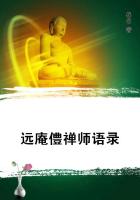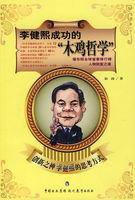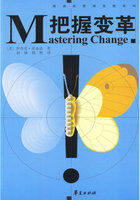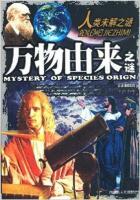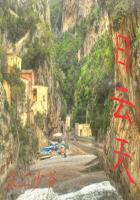The trait was notorious, and often humorous, but any one brought up among Puritans knew that sex was sin. In any previous age, sex was strength.
Neither art nor beauty was needed. Every one, even among Puritans, knew that neither Diana of the Ephesians nor any of the Oriental goddesses was worshipped for her beauty. She was goddess because of her force; she was the animated dynamo; she was reproduction -- the greatest and most mysterious of all energies; all she needed was to be fecund. Singularly enough, not one of Adams's many schools of education had ever drawn his attention to the opening lines of Lucretius, though they were perhaps the finest in all Latin literature, where the poet invoked Venus exactly as Dante invoked the Virgin: -- "Quae quondam rerum naturam sola gubernas." The Venus of Epicurean philosophy survived in the Virgin of the Schools:
-- "Donna, sei tanto grande, e tanto vali, Che qual vuol grazia, e a te non ricorre, Sua disianza vuol volar senz' ali." All this was to American thought as though it had never existed. The true American knew something of the facts, but nothing of the feelings; he read the letter, but he never felt the law. Before this historical chasm, a mind like that of Adams felt itself helpless; he turned from the Virgin to the Dynamo as though he were a Branly coherer. On one side, at the Louvre and at Chartres, as he knew by the record of work actually done and still before his eyes, was the highest energy ever known to man, the creator four-fifths of his noblest art, exercising vastly more attraction over the human mind than all the steam-engines and dynamos ever dreamed of; and yet this energy was unknown to the American mind. An American Virgin would never dare command; an American Venus would never dare exist.
The question, which to any plain American of the nineteenth century seemed as remote as it did to Adams, drew him almost violently to study, once it was posed; and on this point Langleys were as useless as though they were Herbert Spencers or dynamos. The idea survived only as art. There one turned as naturally as though the artist were himself a woman. Adams began to ponder, asking himself whether he knew of any American artist who had ever insisted on the power of sex, as every classic had always done; but he could think only of Walt Whitman; Bret Harte, as far as the magazines would let him venture; and one or two painters, for the flesh-tones.
All the rest had used sex for sentiment, never for force; to them, Eve was a tender flower, and Herodias an unfeminine horror. American art, like the American language and American education, was as far as possible sexless.
Society regarded this victory over sex as its greatest triumph, and the historian readily admitted it, since the moral issue, for the moment, did not concern one who was studying the relations of unmoral force. He cared nothing for the sex of the dynamo until he could measure its energy.
Vaguely seeking a clue, he wandered through the art exhibit, and, in his stroll, stopped almost every day before St. Gaudens's General Sherman, which had been given the central post of honor. St. Gaudens himself was in Paris, putting on the work his usual interminable last touches, and listening to the usual contradictory suggestions of brother sculptors.
Of all the American artists who gave to American art whatever life it breathed in the seventies, St. Gaudens was perhaps the most sympathetic, but certainly the most inarticulate. General Grant or Don Cameron had scarcely less instinct of rhetoric than he. All the others -- the Hunts, Richardson, John La Farge, Stanford White -- were exuberant; only St. Gaudens could never discuss or dilate on an emotion, or suggest artistic arguments for giving to his work the forms that he felt. He never laid down the law, or affected the despot, or became brutalized like Whistler by the brutalities of his world.
He required no incense; he was no egoist; his simplicity of thought was excessive; he could not imitate, or give any form but his own to the creations of his hand. No one felt more strongly than he the strength of other men, but the idea that they could affect him never stirred an image in his mind.
This summer his health was poor and his spirits were low. For such a temper, Adams was not the best companion, since his own gaiety was not folle; but he risked going now and then to the studio on Mont Parnasse to draw him out for a stroll in the Bois de Boulogne, or dinner as pleased his moods, and in return St. Gaudens sometimes let Adams go about in his company.
Once St. Gaudens took him down to Amiens, with a party of Frenchmen, to see the cathedral. Not until they found themselves actually studying the sculpture of the western portal, did it dawn on Adams's mind that, for his purposes, St. Gaudens on that spot had more interest to him than the cathedral itself. Great men before great monuments express great truths, provided they are not taken too solemnly. Adams never tired of quoting the supreme phrase of his idol Gibbon, before the Gothic cathedrals: "I darted a contemptuous look on the stately monuments of supersition." Even in the footnotes of his history, Gibbon had never inserted a bit of humor more human than this, and one would have paid largely for a photograph of the fat little historian, on the background of Notre Dame of Amiens, trying to persuade his readers -- perhaps himself -- that he was darting a contemptuous look on the stately monument, for which he felt in fact the respect which every man of his vast study and active mind always feels before objects worthy of it; but besides the humor, one felt also the relation.


